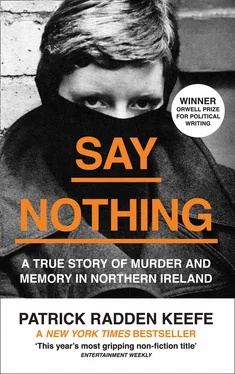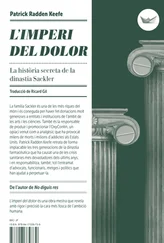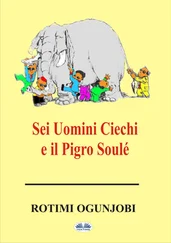D Company was carrying out a dizzying number of operations, often as many as four or five each day. You would rob a bank in the morning, do a ‘float’ in the afternoon – prowling the streets in a car, casting around, like urban hunters, for a British soldier to shoot – stick a bomb in a booby trap before supper, then take part in a gun battle or two that night. They were heady, breakneck days, and Hughes lived from operation to operation – robbing banks, robbing post offices, holding up trains, planting bombs, shooting at soldiers. To Hughes, it seemed like a grand adventure. He thought of going out and getting into gunfights the way other people thought about getting up and going to the office. He liked the fact that there was a momentum to the operations, a relentless tempo, which fuelled and perpetuated the armed struggle, because each successful operation drew new followers to the cause. In the words of one of Hughes’s contemporaries in the IRA, ‘Good operations are the best recruiting sergeant.’
As the legend of Brendan Hughes, the young guerrilla commander, took hold around Belfast, the British became determined to capture him. But there was a problem: they did not know what he looked like. Hughes’s father had destroyed every family photograph in which he appeared, knowing that they could be used to identify him. The soldiers referred to him as ‘Darkie’, or ‘the Dark’, on account of his complexion, and the name stuck, a battlefield sobriquet. But the British did not know what his face looked like, and on many an occasion, Hughes had walked right past the soldiers’ sandbagged posts, just another shaggy-haired Belfast lad. They didn’t give him a second look.
The soldiers would go to his father’s house and rouse him from bed, looking for Hughes. Once, when they hauled his father in for questioning, Hughes was incensed to learn that after two days of interrogation, the old man had been forced to walk home barefoot. The soldiers told his father that they weren’t looking for Brendan in order to arrest him; their intention was to kill him.
This was not an idle threat. The previous April, an Official IRA leader named ‘Big Joe’ McCann had been walking, unarmed, one day when he was stopped by British troops. He tried to flee but was shot. McCann had dyed his hair as a disguise, but they recognised him. He was only wounded by the initial shots, and he staggered away. But rather than call an ambulance, the soldiers fired another volley to finish the job. When they searched his pockets, they found nothing that could plausibly be described as a weapon, just a few stray coins and a comb for his hair.
The runner had not yet returned with a gun for Hughes when the van reappeared. Five minutes had passed, yet here it was once more. Same van. Same driver. Hughes tensed, but again the van drove right past him. It continued on for twenty yards or so. Then the brake lights flared. As Hughes watched, the back doors swung open, and several men burst out. They looked like civilians – tracksuits, trainers. But one had a .45 in each hand, and two others had rifles; as Hughes turned to run, all three of them opened fire. Bullets swished past him, slamming into the façades of the forlorn houses as Hughes tore off and the men gave chase. He sprinted onto Cyprus Street, the men pounding the pavement behind him, still firing. But now Hughes began to zigzag, like a gecko, into the warren of tiny streets.
He knew these streets, the hidden alleys, the fences he could scale. He knew each vacant house and washing line. There was a quote attributed to Mao that Hughes was partial to, about how the guerrilla warrior must swim among the people as a fish swims through the sea. West Belfast was his sea: there was an informal system in place whereby local civilians would assist young paramilitaries like Hughes, allowing their homes to be used as short cuts or hiding places. As Hughes was scrambling over a fence, a back door would suddenly pop open long enough for him to dart inside, then just as quickly close behind him. Some of the residents were intimidated by the Provos and felt they had little choice but to cooperate, while others assisted out of an unforced sense of solidarity. When property was damaged in one of Hughes’s operations, he would pay compensation to the family. He cultivated the community, knowing that without the sea, the fish cannot survive. There was a local invalid who lived on Cyprus Street, ‘Squire’ Maguire, and at the height of the madness, with fires and police raids and riots in the street, residents in the area would occasionally see Brendan Hughes carrying Maguire on his back a few doors down to the pub so that Maguire could have a pint, then dutifully returning to bring him home a short while later. Once, a British soldier in the Lower Falls area caught Hughes in the sights of his rifle. Finger on the trigger, he was ready to open fire when an elderly woman stepped out of some unseen doorway and planted herself in the path of his weapon, then informed him that he would not be shooting anybody on her street on that particular evening. When the soldier looked up, Hughes was gone.
With his pursuers still clomping after him, firing wildly, Hughes veered onto Sultan Street. He had a specific destination in mind: a call house on Sultan Street. Call houses were usually regular homes, occupied by ordinary families, that happened to double as clandestine Provo facilities. Behind one particular door, on a street of identical brick houses with identical wooden doors, would be a secret refuge that could function as a safe house, a waiting room, or a dead drop. The families that lived in these homes deflected any suspicion from authorities. You might show up after midnight, haggard from a gruelling day on the run, and they would lift slumbering children out of their beds, affording you a precious night of rest.
At the corner of Sultan Street, a baker’s van was delivering bread, and as Hughes ran by it, the men behind him let off a volley of bullets, which punctured the van and shattered its windows. He kept pushing, sprinting the length of Sultan, desperate to reach the house before one of those bullets caught him. In addition to its other uses, a call house sometimes functioned as an arms depot. Hughes had become known to the British Army for his willingness to flit around the streets of the Falls area and engage their high-calibre weapons with his little World War II-era .45. The troops had developed what one later described as a ‘grudging admiration for this little bugger who had taken on an elite military unit with a handgun’. But Hughes recognised at a certain point that he needed heavier weapons if he was going to compete. One day, a sailor of his acquaintance came back from a voyage to America with a catalogue for the Armalite rifle – a lightweight, accurate, powerful semi-automatic that was easy to clean, easy to use, and easy to conceal. Hughes fell in love with the weapon. He convinced the Provos to import the Armalite, employing an audacious scheme. Cunard Lines had recently launched the Queen Elizabeth II , a luxury cruise liner that would crisscross the Atlantic, transporting well-heeled passengers between Southampton and New York. A thousand crew members worked on the ship, many of them Irish. Some of them also happened to work for Brendan Hughes. In this manner, Hughes used a ship named after the British queen to smuggle weapons to the IRA. When the guns arrived, fresh graffiti on the walls of West Belfast heralded a game change: GOD MADE THE CATHOLICS, BUT THE ARMALITE MADE THEM EQUAL.
Hughes was tearing along so fast that he almost passed the call house, and when he staggered to a sudden stop and swung open the door, he had acquired so much momentum that he went crashing, instead, right through the front window. He tumbled into the front room, got his bearings – and retrieved an Armalite. Then he stepped outside, saw his pursuers barrelling towards the house, trained the Armalite on them, and started shooting. The men scrambled for cover and fired back. Then, out of nowhere, two Saracen armoured vehicles materialised, rumbling down the road. They stopped abruptly, and suddenly the men were gone. Hughes stood there, panting, processing what he had just witnessed. The gunmen had been dressed like civilians. But they had escaped in a British Army vehicle. They weren’t civilians – they were British Army. That was when Hughes looked down and realised he was bleeding.
Читать дальше












![Helen Rowland - The Widow [To Say Nothing of the Man]](/books/752764/helen-rowland-the-widow-to-say-nothing-of-the-man-thumb.webp)